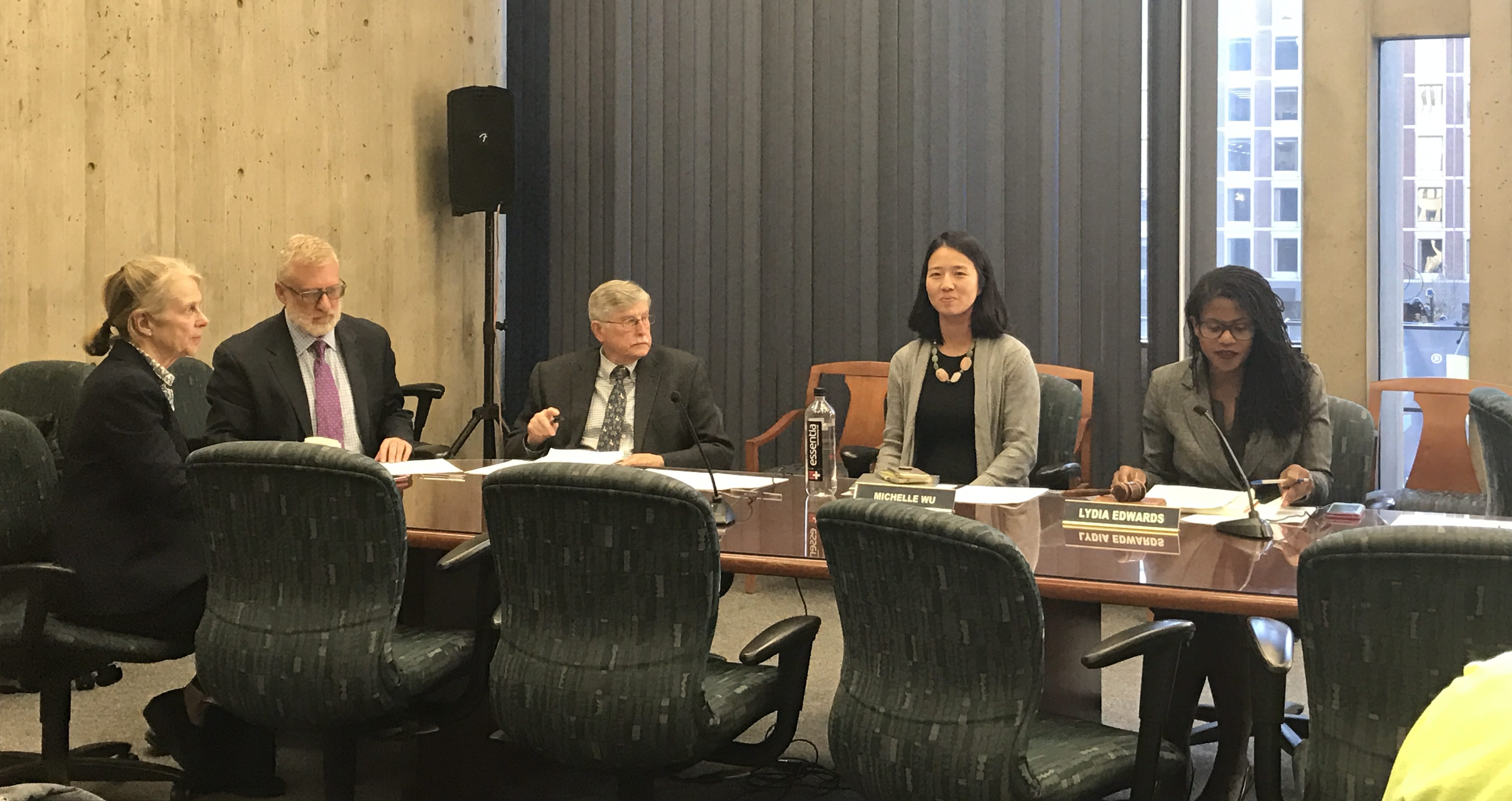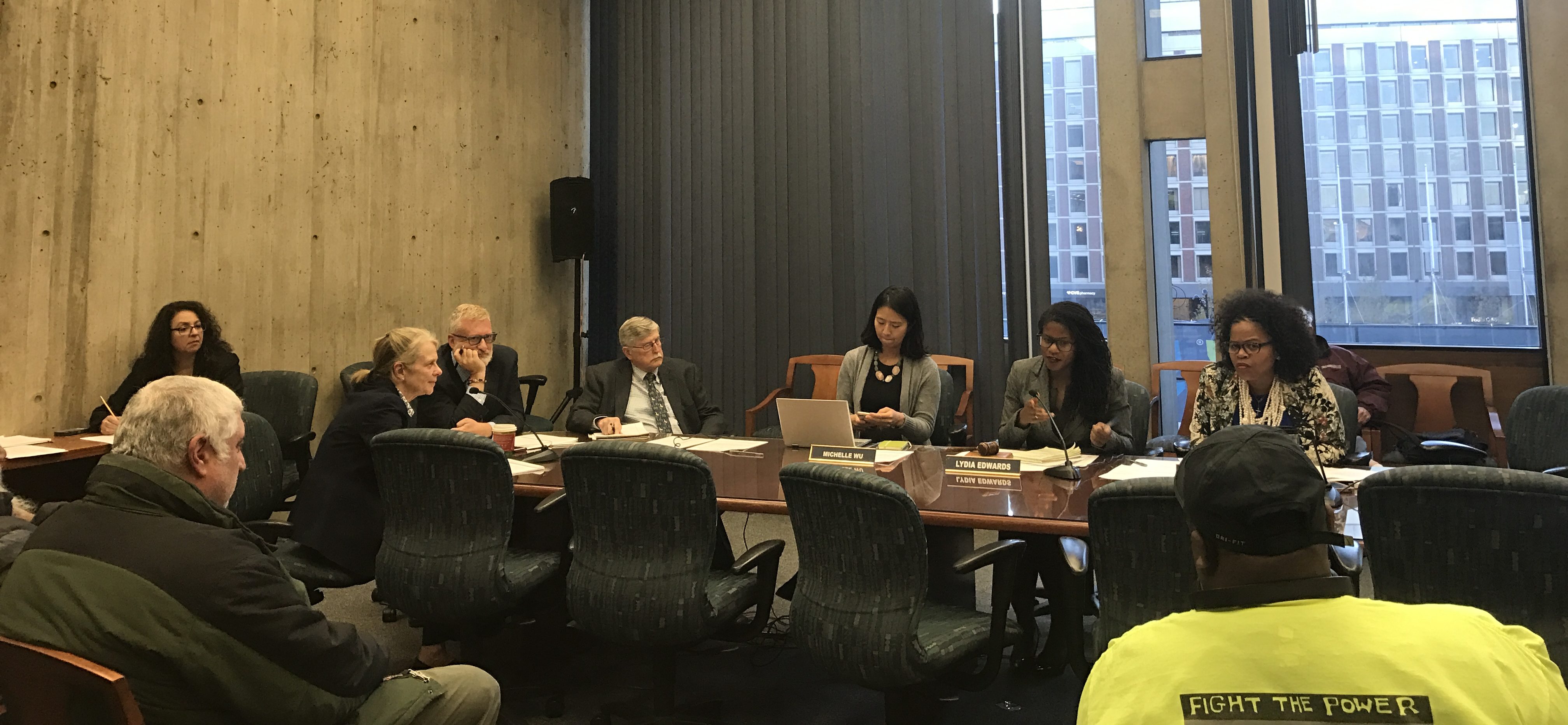The Boston City Council held a working session on housing speculation Thursday afternoon.
Housing speculation is when investors buy up properties, apartments and condos for a low price to then turn it around at a quick rate to make a bigger profit. This creates unaffordable rents, causing residents to be displaced from their communities.

District One City Councilor Lydia Edwards called for the hearing, saying speculation is a big problem in the city.
“We are going to continue working on this to develop ideas and policy,” said Edwards. “It’s happening and it’s a problem. We are going to get to work.”
Rents continue to rise in Boston. The average cost to rent an apartment is $2,100, which is a 4 percent increase from last year. Currently, the city is on track to create 69,000 more units in its 2030 housing plan. In a recent column, Mayor Walsh said 15,820 of these new units will be income-restricted.
One of the ideas brought up at the hearing was a property flipping tax where fees would be placed on those who flip properties. The money raised from the tax would go to developing affordable housing. Another was to limit home-share units to one unit in owner-occupied buildings.
Lisa Owens of City Life said she believed in the idea of a flipping tax. “I am encouraged by the direction the council and the administration is taking,” she said.

Chief of Housing and Director of Neighborhood Development Sheila Dillon said adding more affordable housing to Boston is one of her biggest priorities.
“It is paramount to this administration,” she said. “We want to keep neighborhoods affordable.”
The city recently started a new pilot program in East Boston where they take units out of the speculative market by buying them or helping a non-profit committed to affordable housing buy them. She said she would like to take about 1,000 out of the speculative market by 2030.
“This way residents can call these units their homes as long as they would like,” she said.
In June, the city council and the mayor passed an ordinance to regulate short-term rentals. The ordinance bans short-term rentals from non-owner occupied buildings, eliminating investor units and absentee Airbnb landlords. This was another way for the council to help with the housing crisis.
“People are treating the housing market like the stock market and it needs to stop,” said Edwards.




House flipping is the primary cause of the gentrification which displaces people for profits when rampart.
sorry for my typo should read rampant.
It is disappointing that the City Council is spending time on evaluating the housing market but in a small minded way. The train has left the station in many neighborhoods and there aren’t opportunities left to house flip. Many investors are heading to Medford and Watertown. Now we are talking about what is left and that leaves primarily East Boston, Dorchester and Roxbury. Someone willing to invest in any neighborhood should not be penalized. Remember there are already fees to the city for both sales, permits to renovate, and real estate taxes being paid the entire vacancy window. There are architects, contractors, banks involved, and products bought. Growth is good for the city and you cannot stop progress. You could look at city owned, vacant properties, and institutions who do not pay taxes. You can plan better and incentivize for lower income housing.
And consider this, an elderly gentleman in Jamaica Plain, who unlike government employees blessed with pensions, told me he was so grateful that the sale of his home would now provide him retirement money because the neighborhood had improved so much over the years.